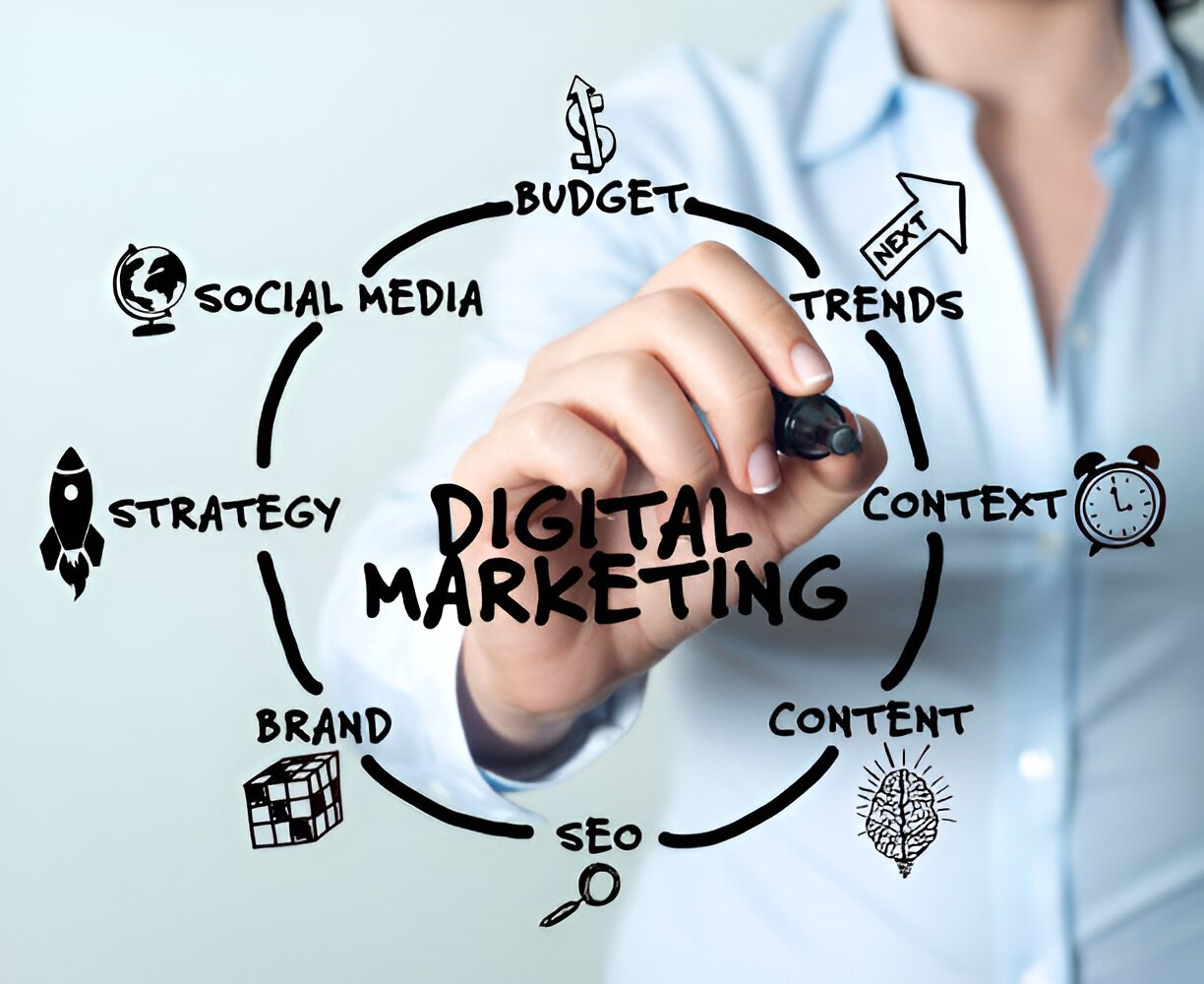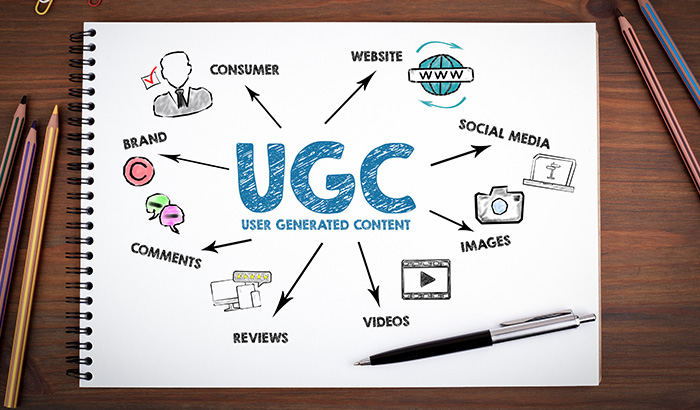Query Form
Query Form
Why Digital Marketing is Important for Small Businesses

#1. What is Why Digital Marketing is Important for Small Businesses
In the fast-paced digital environment we live in today, business has completely changed. The way we purchase, interact, and conduct business has all been completely transformed by the internet. Digital marketing is essential for small businesses, not just a choice. It creates a level playing field, so small businesses may compete with bigger ones. Here's a detailed look at the importance of Internet marketing for small businesses. 1. Cost-Effectiveness - The affordability of digital marketing is one of its biggest benefits. Conventional marketing techniques, such as print, radio, and television advertisements, are costly and frequently out of small firms' reach. Conversely, pay-per-click (PPC) campaigns, email marketing, and social media advertising are examples of inexpensive choices available through digital marketing. With these strategies, small businesses can expand their customer base without going over budget. 2. Specialized Promo - Precise targeting is possible with digital marketing. Businesses cantion use platforms like Facebook Ads and Google AdWords to target particular interests, behaviors, and demographics. This implies that those who are more likely to be interested in your goods or services are the target audience for your marketing campaigns. Increased lead-to-customer conversion rates result in a higher return on investment (ROI) from targeted advertising. 3. Measurable Outcomes - Digital marketing, in contrast, yields quantifiable outcomes. Comprehensive reports on the effectiveness of your ads can be obtained using tools like Google Analytics and social media analytics. Metrics like website traffic, conversion rates, click-through rates, and more can be monitored. Businesses may evaluate what's working and what isn't with this data, which helps them improve their plans and get better outcomes. 4. Increased Interaction with Customers - You can communicate directly with your audience with digital marketing. Social media sites like Instagram, Twitter, and Facebook let companies interact with clients instantly. Reacting to reviews, messages, and comments promotes community and establishes trust. Another effective strategy for preserving client relationships is email marketing, which provides targeted material to keep readers interested. 5. Wider Scope - The borders of the internet are infinite. Small businesses can reach a worldwide audience by using Internet marketing. This is especially advantageous for e-commerce companies trying to grow. By focusing on local clients, even small enterprises can gain an advantage. Local SEO and search engine optimization (SEO) assist companies in showing up in search results, drawing in more local clients. 6. Enhanced Recognition of the Brand - Digital marketing aids in the brand awareness development of small firms. Customers will remember your brand if you have a consistent online presence on social media, a well-kept website, and frequent content updates. By establishing your company as an authority in your sector through content marketing—such as blogs and videos—you may further establish the credibility of your brand. 7. Advantage over Competition - To be competitive in today's market, one must stay one step ahead of the competition. Small businesses can now compete on an even playing field with larger corporations because of digital marketing. Small businesses may draw in and keep consumers by utilizing SEO, social media, and content marketing. Creative digital marketing techniques can set your company apart from rivals and make you stand out in a crowded field. 8. Higher Revenue and Sales - Increasing income and driving sales is the ultimate goal of any marketing campaign. This is accomplished by digital marketing, which also engages consumers and fosters brand loyalty. Customers may make purchases more easily thanks to social network shopping features and e-commerce platforms, which increase sales. Retargeting efforts can also aid in recapturing lost leads, which will increase income. 9. The ability to be adaptable and flexible - It is quite easy to adjust and modify digital marketing. Businesses may respond to changes in the market and client preferences in real time by quickly adjusting campaigns based on performance data. Small organizations, which must make the most of their resources and adjust swiftly to remain competitive, especially need to possess this agility. 10. Establishing Relationships with Customers - Developing and preserving a relationship with customers is critical to long-term success. Digital marketing offers multiple avenues for fostering these connections. Businesses can send updates, special offers, and personalized messages to clients directly through email marketing, for instance. Social media platforms facilitate continuous communication, cultivating a devoted clientele that upholds and advances your company. Step-by-Step Guide to Digital Marketing Implementation: A systematic approach is necessary for small firms to properly profit from digital marketing. Here are some doable actions to get you going: 1. Create a plan for digital marketing Begin with a well-defined plan. Establish your objectives, target market, spending limit, and KPIs (key performance indicators). Determine which digital marketing platforms are most important to your company, then devote resources appropriately. 2. Construct a Credible Website Your online store is represented via your website. Make sure it's user-friendly, polished, and responsive to mobile devices. To increase its exposure in search results, optimize it for search engines (SEO). Provide important details like your contact information, product and service descriptions, and client endorsements. 3. Make Use of Social Media Determine which social media sites are frequented by your target demographic and create an account there. Post interesting stuff regularly, reply to comments, and engage with your audience. To expand your audience and increase website traffic, use social media advertising. 4. Make Use of Email Marketing By providing insightful articles, exclusive offers, or discounts, you can grow your email list. To keep your audience interested, send out updates, targeted offers, and newsletters regularly. Maintaining customer relationships and nurturing prospects at a low cost can be achieved through email marketing. 5. Track and Examine Results Utilize tools such as email marketing reports, social media insights, and Google Analytics to track the effectiveness of your digital marketing campaigns regularly. Examine the data to determine what is effective and what requires improvement. Make use of these insights to improve the outcomes of your strategies. In summary In conclusion, in the current digital era, digital marketing is essential for small enterprises. It provides affordable, precise, and quantifiable methods for expanding one's audience, interacting with clients, and increasing revenue. Small businesses may leverage the power of digital marketing to achieve long-term success by creating a clear strategy, utilizing a variety of digital marketing channels, and regularly assessing results. Reach new heights with your small business by embracing the digital revolution.
Query Form
Follow Up on Social Media for Daily New Search Engine Update
Subscribe to Get the Latest Updates on the Search Engine World and How We Can Help Your Business
Note: Please enter a valid email id
Let’s Get to Talkin’
Support
Mail us for:
Complaint/Suggestion
Call Us
+91 9992229755
+91 98759 29761
Our Trusted Partners



© 2025 Career Infowis IT Solutions. All Rights Reserved.
























